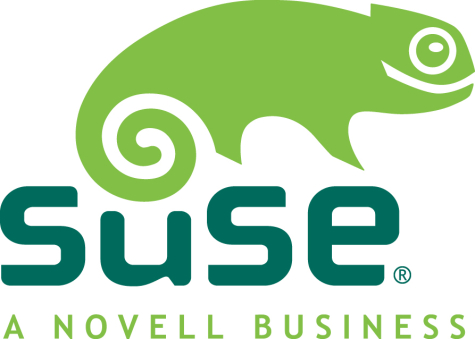Novell: Free SLES while the fire is hot


My "Free Enterprise OSes" post got a lot of attention and a lot of positive feedback, particularly from those who are now actually considering using some of these in order to reduce license costs.
Still, while I am glad people are now considering these OSes as real enterprise computing solutions, a nagging feeling remains along the lines of the Cookie Monster's famous platinum hit, "One of these things is not like the other. One of these things does not belong." And that thing is openSUSE, particularly when included in the list with CentOS/Scientific, Solaris and BSD.
Look, I like openSUSE. A lot. I fought to get SuSE Linux Professional released into Open Source when the idea wasn't even a twinkle in Novell's eye. I run openSUSE on several of my personal systems, and I have it virtualized up the ying-yang on VMWare ESX 3i. And while openSUSE is stable, it's not optimized for server use, it's more of an end-user/developer OS, even though it could be "purposed" as a server and I frequently do this myself. However, openSUSE's 2-year support cycle makes it viable as a server only for the most agile software development shops.
Click on the "Read the rest of this entry" link below for more.
What I really want is something the lines of an openSLES -- in other words, a free version of SLES with free security and bugfix updates, with the support lifecycle to back it up.
Novell could easily do this tomorrow -- SLES 10 is already a free download, but the updates require support entitlements. All they have to do is put up the updates and the source for the updates on a free repository and give the source tree to the openSUSE project for building and maintaining openSLES -- or even get the CentOS guys in on the action if they want to spin their own flavor. CentOS "Green", perhaps? Dag Wieers, one of the primary developers of CentOS, stated nearly a year ago that a Free SLES clone would be desirable, but that that the interest to build a Free SLES from Novell's SRPMs at the time of his writing was not there and that major philosophical and ideological changes in the way Novell currently interacts with the Open Source community would have to come about in order for it to be realized.
Of course, that was a year ago, when the "401-Keg" wasn't a viable investment strategy. I suspect that if a Free SLES did exist, it would gain rapid adoption in short order.
Given the fact that SLES isn't likely to take the #1 Enterprise Linux server OS position from Red Hat without some major incentives, now that businesses are cutting costs all over, this may be the one opportunity that Novell has in order to gain some major SLES momentum and grab SMB market share from RHEL and dare I say it, Windows Server. Yes, they would be giving up some update entitlement income, but they'd be seeding their OS everywhere and where you have seeds, you have gardens that grow for future professional services and software sales, particularly as these businesses do recover and will want "priority" technical support and patches, as well as other Novell products to manage their SLES infrastructure later on, such as PlateSpin and ZEN.
No doubt, releasing an Open Source SLES would be a risky move on Novell's part, but I think that the support model could be structured in such a way that openSLES could be community-supported only and have no phone support, and the commercial SLES would have priority support of different flavors. Truth be told, more often than not, and this is from a large amount of personal experience, the larger customers want the support contracts and paid entitlements, so they can hold something over the vendor's head in case things go wrong -- otherwise known as the "we need somebody we can sue" rationale.
One of Novell's competitors, Sun Microsystems, manages to strike a nice balance with Solaris 10 by re-mastering the freely downloadable install media every year, but provides premier support options as well -- for both Solaris and OpenSolaris. There's a lot of things that Sun does that makes me shake my head, but in this case as it pertains to support of their Open Source/Free OS, they have a good model.
Short of a free SLES, as Yoda has said, "There is another". And that would be to take openSUSE and do a "Server Edition" a la Ubuntu. I discussed this with our Community Incorporated blogger Joe Brockmeier, Mr. openSUSE, and he told me he's "happy to see openSUSE contributors repackage openSUSE in ways that make sense for them. The whole point of the openSUSE Build Service is to allow innovation in and around openSUSE. If that means packaging a 'openSUSE server' custom build, that'd be great."
To build an openSUSE Server or a "CentOS Green" distro I would like to see the developers take a subset of the openSUSE codebase and match it on a package-by-package basis with SLES in terms of base functionality, and run it on a stable kernel, such as the SLES/SLED kernel which has SRPMs available. And to make it truly viable it would need to have a minimum support cycle with updates and patches of 3 to 4 years.
Novell needs to make a grab for customer mindshare now while traditional software paradigms and established players are being challenged. Do we need an openSLES, a "CentOS Green" or openSUSE Server Edition? Talk Back and let me know.